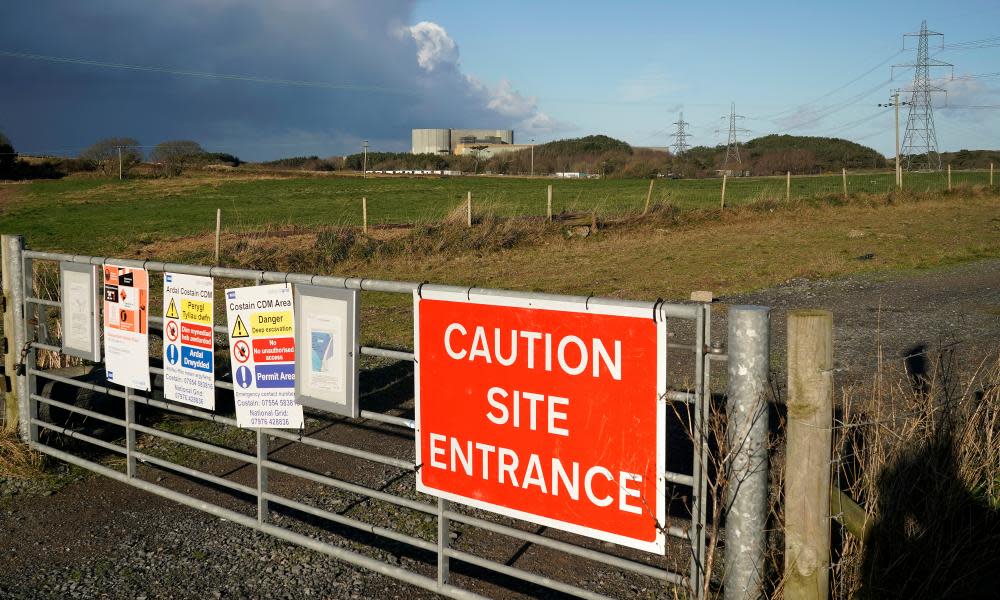The Observer view: the Hitachi fiasco confirms that our energy policy now lies in ruins

By any standards, last week’s decision by Hitachi to end construction of its £20bn nuclear power plant at Wylfa in Wales was a major blow to Britain’s prospects of creating an effective energy policy for the 21st century. The move follows a withdrawal by Toshiba from the construction of a similar project in Cumbria last year and leaves Britain struggling to find ways to generate electricity for a low-carbon future.
Together, these nuclear plants would have generated 15% of Britain’s electricity – without emitting carbon dioxide. Now the government faces serious questions about how its electricity pricing policies scuppered these two key pieces of UK infrastructure. More importantly, the nation needs to know, very quickly, how ministers intend to make up for this lost capacity. Given the tepid nature of previous plans and continual changes made to energy policies, success is not guaranteed.
Britain needs to cut its greenhouse gas emissions from electricity generation to zero within the next couple of decades. Coal, gas and oil plants, which emit hundreds of millions of tonnes of carbon dioxide every year, have to be phased out and replaced by renewables and nuclear power plants, it has been decreed. This reduction would then be followed by a second tranche of cutbacks that would bring about the complete decarbonisation of all other parts of the economy, in particular transport, by 2050.
However, the loss of the Hitachi and Toshiba plants undermines our chances of achieving this first goal of decarbonising our power production and, therefore, of succeeding in the ultimate goal of making Britain a completely carbon-free nation later this century. If so, we will have failed in our duty to help in the battle to avoid dangerous global warming of more than 1.5C this century.
So how should the government respond? Nuclear power plants require massive investment and take decades to construct. Britain’s only new reactor, currently under construction at Hinkley Point, is eight years behind schedule and faces huge cost overruns. Its construction has proceeded only because the government agreed to pay vastly inflated prices for its electricity for a guaranteed 35 years. At the same time, prices of power from renewable energy sources continue to plunge.
However, there is a limit to how much power can be generated from a source that operates only when it is breezy. As the nuclear expert Prof Sue Ion says: “It is a fallacy to think we can provide the UK’s energy with intermittent renewables alone.”
This leaves ministers with a number of options that need to be tackled urgently. They need to reopen talks with Hitachi and Toshiba to hammer out a sensible electricity pricing mechanism for power from their plants and so allow building work to resume. Investments in other areas also need to be pursued more emphatically and imaginatively. As we report in New Review (“The northern powerhouse”), the development of new UK renewable energy sources, from tides and waves, is underfunded, while failures to promote wind energy technology 30 years ago let Germany and Denmark dominate the now lucrative wind turbine market. Such a mistake must not be repeated with tide or wave power.
Stable funding should also be provided for carbon capture and storage (CCS), a technology that allows carbon dioxide to be extracted from fossil fuel power plants and buried deep underground, thus allowing coal, oil and gas power stations to continue operations but without the emission of carbon dioxide. However, CCS has also suffered from dithering by ministers who have promoted and then axed schemes with dismal frequency. For good measure, Britain needs a better electricity grid and improved transmission links with other nations so that power can be exchanged during differing weather conditions.
In short, an entire set of measures needs to be consolidated in an over-arching policy that will ensure the UK has a co-ordinated approach to energy generation. At the moment, the government is obsessed by the prospect of a crippling UK exit from the EU. That distraction can no longer be tolerated.

 Yahoo News
Yahoo News 
